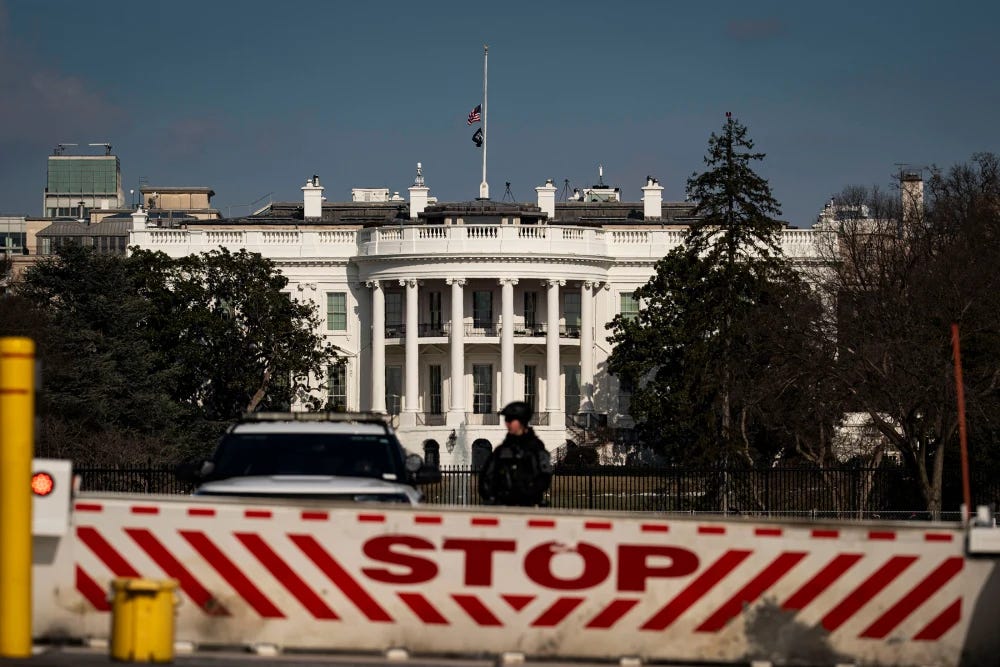Second Federal Judge Blocks Trump’s Freeze on Federal Aid Funding
Court Rules Executive Action Unlawful, Rejects Justice Department’s Claim of Mootness
A second federal judge has temporarily blocked the Trump administration’s freeze on federal aid funding, siding with a coalition of 22 states in a ruling on Friday. This marks the second such decision this week, after a similar order was issued by a different judge.
U.S. District Judge John J. McConnell of Rhode Island ruled that the directive issued by the Office of Management and Budget (OMB) earlier this week appeared to violate the law, causing confusion and disruption across the country.
“The Executive’s action unilaterally suspends the payment of federal funds to the States and others simply by choosing to do so,” McConnell wrote. “The Executive cites no legal authority allowing it to do so; indeed, no federal law would authorize the Executive’s unilateral action here.”
The ruling granted the states’ request for a temporary restraining order, preventing the Trump administration from enacting the freeze on federal grants and loans. The Justice Department had argued that the lawsuit was moot, pointing to the rescission of the White House memo that originally outlined the freeze. However, McConnell disagreed, citing a statement from White House press secretary Karoline Leavitt, which clarified that the rescission was only of the OMB memo, not the freeze itself.
“The evidence shows that the alleged rescission of the OMB Directive was in name-only,” McConnell wrote. “The policies in the OMB Directive that the States challenge here are still in full force and effect.”
The OMB memo, issued on Monday night, had directed federal agencies to “temporarily pause all activities related to obligation or disbursement of all Federal financial assistance.” The memo specifically targeted financial assistance for foreign aid, nongovernmental organizations, and various other sectors, including those related to the Green New Deal, diversity and inclusion initiatives, and gender ideology. The ambiguity of the memo caused widespread confusion, with reports of individuals and organizations being unable to access systems to receive their federal aid.
Following the memo's release, two lawsuits were filed—one by a coalition of nonprofits and another by the states and the District of Columbia. On Tuesday, U.S. District Judge Loren AliKhan issued a pause on the freeze to allow for a more thorough review. McConnell’s ruling, however, went further, stating that the states were likely to succeed in their claims that the administration’s actions were unlawful.
“Federal law specifies how the Executive should act if it believes that appropriations are inconsistent with the President’s priorities – it must ask Congress, not act unilaterally,” McConnell wrote.
He continued, “The Court imagines there are some aspects of the pause that might be legal and appropriate constitutionally for the Executive to take, but it is equally sure that there are many instances in the Executive Orders’ wide-ranging, all-encompassing, and ambiguous ‘pause’ of critical funding that are not.”
The temporary restraining order blocks the Trump administration from freezing federal funding to states until the court can rule on a motion for a preliminary injunction.
Rhode Island Attorney General Peter Neronha praised the judge’s decision, saying, “The Executive Branch does not have the authority to intercept crucially important federal funding that Congress has already allocated to the states, and on which Americans rely.”
Neronha further criticized the administration's directive, calling it an attempt to sow fear and chaos, targeting essential services such as public safety, health care, and disaster relief.


